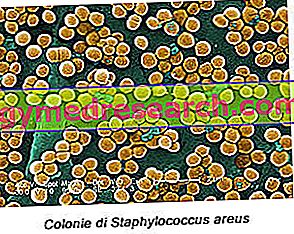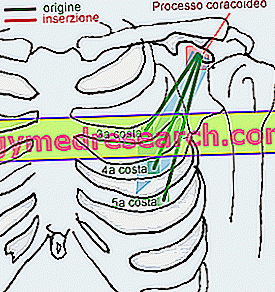Related articles: Sixth disease
Definition
The sixth disease (or roseola infantum) is a typical exanthematous disease of childhood, which mainly affects small children between 6 months and 2 years of age.
The causative agent of this infectious disease is human herpes virus 6 (human herpes virus 6, HHV-6) or, less commonly, HHV-7.
Despite being present throughout the year, the sixth disease occurs most often in spring and autumn. It is contracted through direct contact with the mucus or saliva of the infected patient or by air, with respiratory droplets emitted by coughing, sneezing or simply speaking.
Most common symptoms and signs *
- Asthenia
- Conjunctivitis
- Convulsions
- Febrile convulsions
- Muscle pains
- Hepatitis
- Rash
- Temperature
- Swelling around the ear
- Swollen lymph nodes
- macules
- Sore throat
- Mass or swelling in the neck
- meningism
- Nervousness
- Eyes reddened
- papules
- Cold
Further indications
The sixth disease begins after 5-15 days of incubation, with a high fever (39.5-40.5 ° C), with no other symptoms or identifying signs. During defervescence, which occurs rapidly after about 3-5 days, a macular or macular-papular exanthe appears, mainly on the trunk and on the neck and, to a lesser extent, at the level of the face and the attachment of the thighs and arms. The spots that characterize this cutaneous manifestation are pale pink, sometimes slightly raised. This roseoliform eruption causes neither itching nor peeling of the skin, it lasts from a few hours to 2 days and, in mild cases, it can even go unnoticed.
Simultaneously with the exanthema, other symptoms appear, such as colds, redness of the throat, hyperemia of the conjunctiva and cervical and posterior auricular lymphadenopathy, malaise. Encephalitis or hepatitis occur, however, rarely.
The diagnosis is clinical and is based on the finding of typical symptoms, possibly confirmed by culture tests, PCR or serological tests.
Therapy is generally symptomatic and may include the administration of antipyretics to lower fever and good hydration. Immunosuppressed patients who develop a serious illness can be treated with foscarnet and ganciclovir.



